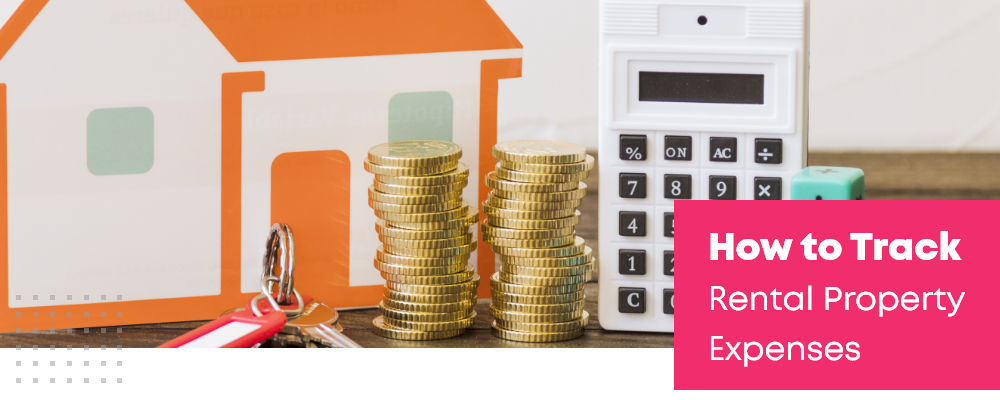How to Track Rental Property Expenses
Accounting can be a total nightmare, but what’s worse is if you are audited by the IRS and don’t have any of the necessary information they will need to have. Most property owners hire a professional to track the expenses for them, but it’s always good practice to be your own bookkeeper too. Keeping detailed expense records will not only help you feel more organized but it will also make filing your taxes easier, allow you to see more opportunities for deductions, and understand the return on each of your rental investments.
The first thing that should be identified is what needs to be tracked. Some examples of income and expenses to track are:
- Recurring rental payments (rent, parking fees, pet fees)
- One-time tenant fees (move-in fees)
- Fees to break a lease
- Security deposits used to cover unpaid rent or property damage
- Recurring monthly expenses (mortgage, HOA fees, property taxes)
- One-time fees (maintenance, legal fees)
- Property depreciation
Secondly, establishing a process to track everything is crucial to keeping your sanity (trust me). There are two ways you can track your rental property expenses: manually and online. That’s it. Online is absolutely the way to go. Online expense tracking tools were built to be fast, secure, and help you prepare for tax season. Your hand won’t cramp from writing in expenses, and you won’t have to worry about stapling receipts anywhere. FiSense Group makes bookkeeping an easy affair with accurate and updated financial reports that allows business owners to perform fundamental analysis so you can make informed decisions. They also provide valuable insights through data analysis to improve your understanding of your financial and operational picture.
Benefits of Tracking Rental Property Expenses
The whole purpose of tracking your property’s expenses is to prepare for tax season and deduct as many items as possible. However, to do this, you need to have a very detailed report. While it might seem like common sense to keep track of your rental property expenses as part of the rental management process, there are other benefits of doing so that are related to your financial standings as a landlord. Here are some key reasons to have detailed rental property expenses:
- Maximize tax deductions: this might be one of the best reasons for you to carefully keep track of your rental expenses, as it will not only make filing taxes easier and more accurate, but you won’t miss out on any deductions that you qualify for (all the deductions please!).
- Be prepared for IRS audits : while we don’t wish this upon you, it’s well known that the IRS audits many companies every year. If there are any discrepancies on your tax return, having your tracked rental expenses as proof to back up your claim will come in handy.
- Helps you calculate the NOI on your properties : the NOI (Net Operating Income) is the calculation you use to analyze the profitability of your rental investment properties. The NOI is calculated by subtracting all your expenses from your total revenue, which helps you understand how much you’re spending for each property and how it’s impacting the ROI of your property.
Now that we have touched on tax deductions, let’s take a look at the kinds of deductions allowed by the IRS that you should be keeping a record of:
- Advertising – this consists of all marketing costs such as “for rent” yard signs, advertising on certain websites, or sending out mailers.
- Auto and Travel – driving back and forth to your rental? Driving, along with other necessary and ordinary auto and travel costs needed to maintain your rentals, would qualify in this category.
- Cleaning and Maintenance – includes all cleaning expenses you spend on your rental after a tenant moves out as well as common maintenance expenses like yard work, painting, and other upkeep, or maintenance requests you tend to.
- Commissions – this means real estate agent or property management commissions you paid to help find a tenant.
- Insurance – there are a variety of insurances you can report such as homeowners, hazard, and flood insurance. Remember that this is the amount you actually paid to your insurance company (not what you pay in escrow).
- Management Fees – if you have a property manager or agent helping manage the property, their fees would be included in this category.
- Legal and Professional Fees – if you have any expenses related to accounting, attorney fees, or other business costs related to your tenants, it can qualify for this category.
- Utilities – this includes utility expenses you have incurred, even if your tenant reimbursed you for them. Do not include utilities that the tenant has paid for solely themselves.
- Taxes – all the tax expenses you have accrued from owning and operating your rental property such as property taxes, land taxes, school district taxes, or special easements can be included in this category. This does not include income taxes.
- Repairs – tracking repairs made to the property that were not considered “capital improvements” would be in this category. For example, small repairs like fixing a broken window – not large renovations like replacing floors or the roof.
Is your head spinning yet? Mine too. All this information is just to say that the key to tracking your property’s expenses is finding a process that works best for you. There are countless resources available and contacting a property management company is a good place to start for some referrals.
